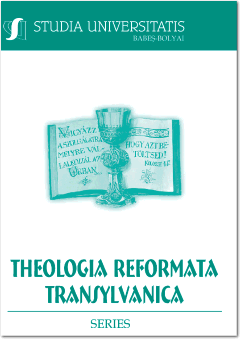KÖZÖSSÉG KARANTÉNBAN. A VESZTEGZÁR IDEJÉN HOZOTT EKKLÉZIOLÓGIAI DÖNTÉSEINKKEL VALÓ MEGBÉKÉLÉS LEHETŐSÉGEI
QUARANTINED COMMUNITY. THE POSSIBILITIES OF RECONCILIATION WITHIN THE ECCLESIOLOGICAL CHOICES OF THESE TIMES
Author(s): András-László RádSubject(s): History of Church(es), Biblical studies, Systematic Theology, Pastoral Theology
Published by: Studia Universitatis Babes-Bolyai
Keywords: online sermons; virtual community; reconciliation; church service; deliberating transition;
Summary/Abstract: Quarantined community. The possibilities of reconciliation within the ecclesiological choices of these times. Mandatory social distancing guidelines set forth by national governments prohibited gatherings and consequently led to cancelling all social events and closing down all churches. Ministers and parishioners, priests and congregants, elders and church leaders all felt that it is high time for implementing creative solutions to keep the common worship going in this crisis. Some migrated to broadcasting daily devotions on virtual platforms, others shared pre-recorded sermons. A growing number of protestant ministers started streaming live church services from empty churches without congregants. The conceptual discrepancy between form and content in this new exercise barely grazed the stimulus threshold of theological thinking of a few theologians, while others chose to find their peace in the impartiality provided by the comfort of blissful ignorance. This paper offers ec-clesiological scrutiny of one of the most prevalent questions of the practice of cultus Dei, namely: how should we worship God correctly? How does the possibility of encountering the transcendent in the mystery of the Word open up to our congre-gants in the new dynamic of the worship? We talk about the conscious renewal of worship in the true spirit of Scripture and not renewal of liturgy. We reflect on practices, and emphasize the necessity of having God’s Word in the focus of our worship services, be they individual or communal. We consider the vitality of our congregants’ individual responsibility in acknowledging and living the truth of Christ’s sacrifice and atoning work. The article reflects on the role of the minister in this process, and invites scholars to an engaging dialogue.
Journal: Studia Universitatis Babeș - Bolyai Theologia Reformata Transylvanica
- Issue Year: 65/2020
- Issue No: 1
- Page Range: 231-250
- Page Count: 20
- Language: Hungarian

